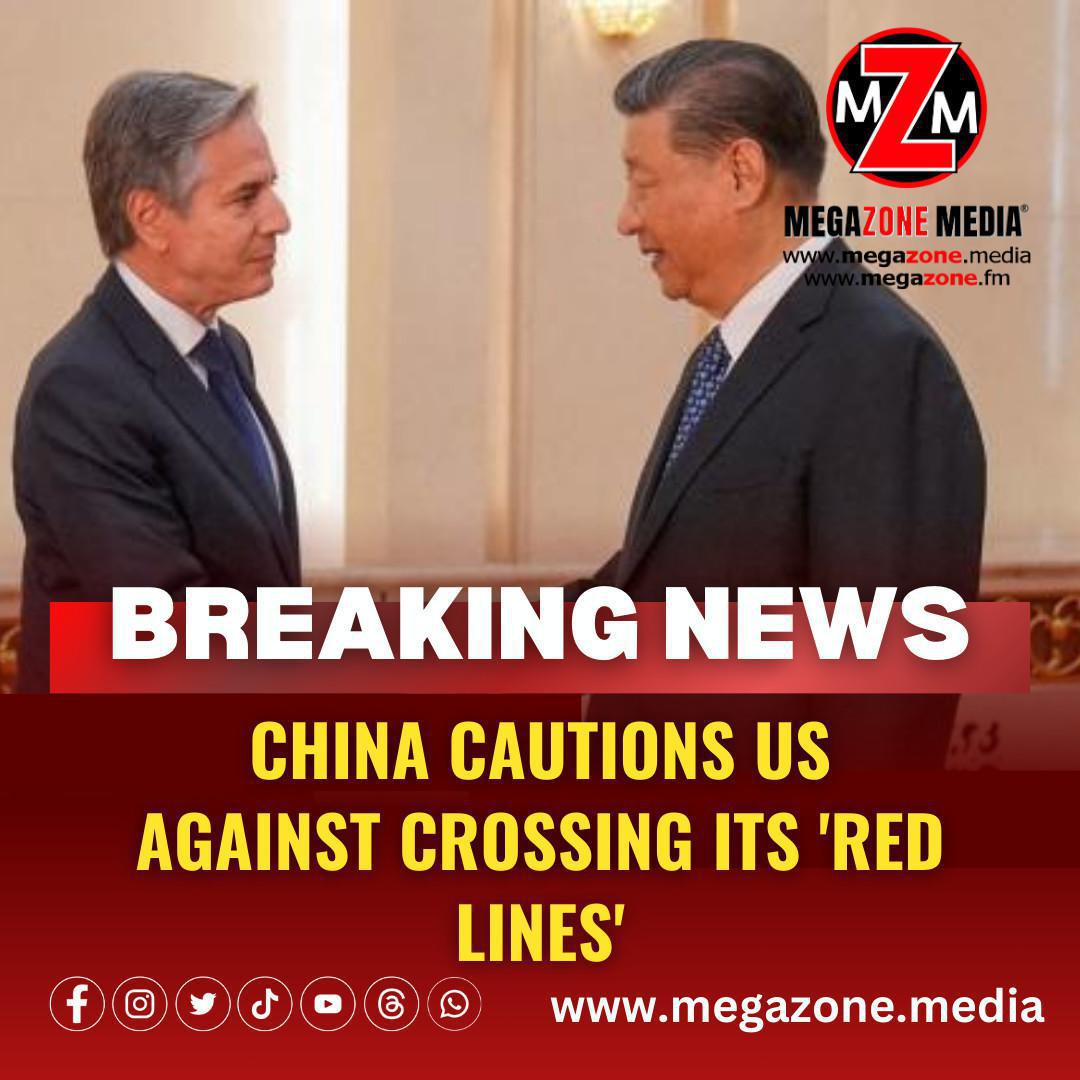During a meeting between the top diplomats of China and the US in Beijing, Chinese Foreign Minister Wang Yi cautioned his US counterpart Antony Blinken against crossing China's "red lines".
Wang acknowledged that while the China-US relationship was beginning to stabilize, it was still being tested by "negative factors".
After meeting with China's President Xi Jinping, Blinken emphasized the importance of "clear communication about our differences" to minimize the risk of miscalculation and misunderstandings. Blinken's visit, his second to China in less than a year, reflects a significant increase in dialogue and diplomacy between the rival powers, even amidst frosty relations, as they attempt to improve their relationship after a period of immense tension last year.
Ties have been strained by China's claims over Taiwan and the South China Sea, as well as US export bans on advanced tech. A row over a spy balloon further damaged relation last February. Just a few days ago, the US passed a law that could force Chinese-owned TikTok to sell its popular video app or face a ban in America.
While TikTok was not discussed in talks with the Chinese leader, Blinken mentioned several US concerns. Washington's recent approval of a military aid package to Taiwan drew sharp criticism from Beijing.
In Beijing, Blinken reaffirmed US support for the "one-China policy" and reiterated the US's "ironclad" support for the Philippines in their South China Sea dispute.
He also raised concerns about the erosion of Hong Kong's autonomy and human rights abuses in Tibet.
Regarding China's role in global affairs, Blinken urged China to stop supplying Russia with materials for its invasion of Ukraine and to discourage Iran and others from escalating tensions in the Middle East.
During a call earlier this month, US President Joe Biden and President Xi discussed cooperation on climate change and narcotics, but clashed over US support for Taiwan and trade restrictions on technology.


